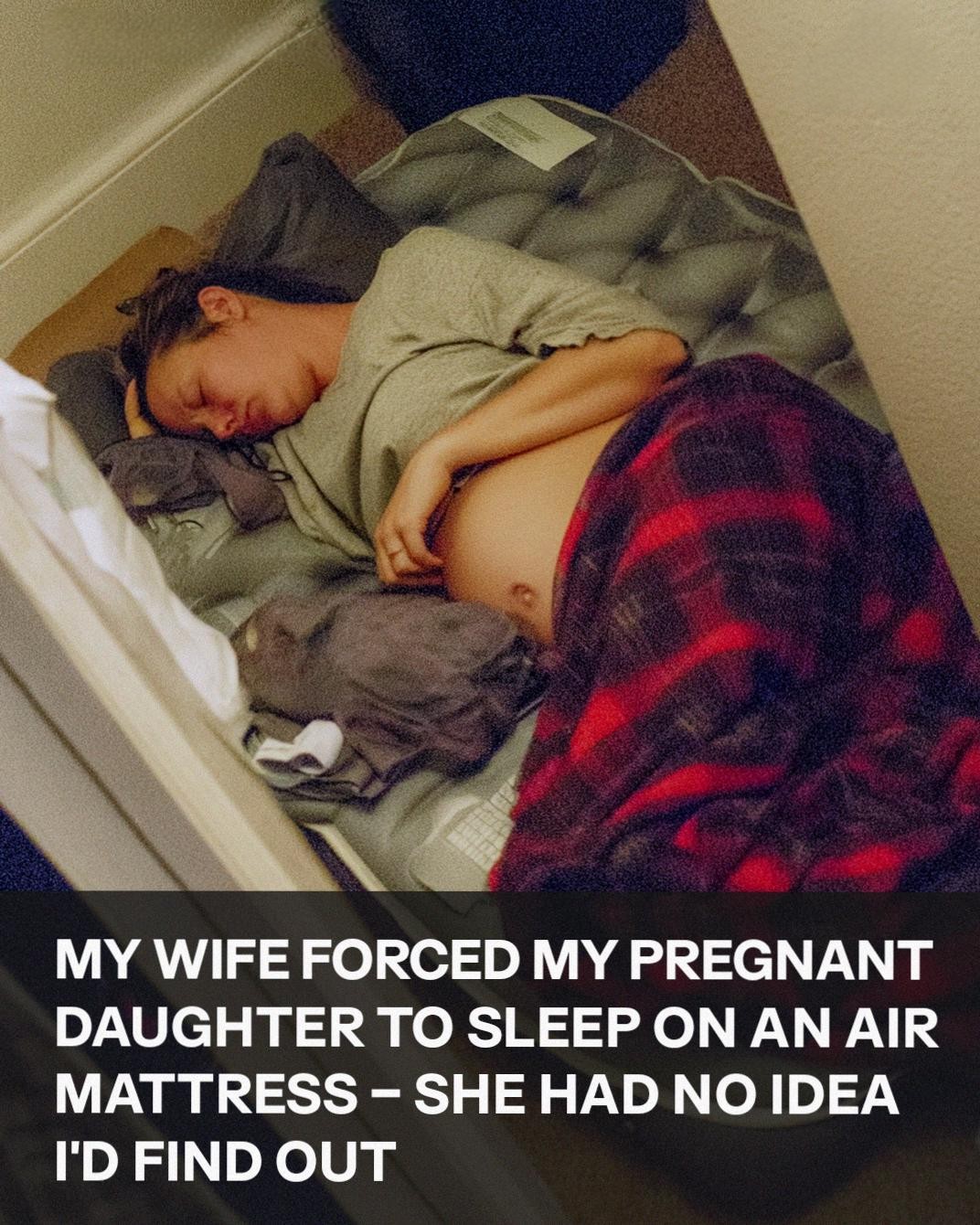My name is Rufus. I’m 55, born and raised in Indiana. I manage logistics for a freight company, which means I’ve spent most of my life on the road, fixing other people’s problems. I’ve never been flashy or loud—just steady, organized, practical. At least, I thought I was. The only person who could ever crack that calm exterior was my daughter, Emily.
She’s twenty-five now—sharp, kind, and funny in a quiet way. Her mother, Sarah, passed away ten years ago after a long fight with cancer. Emily was fifteen then. Losing Sarah changed both of us. The silence that followed that funeral still lingers. She went inward; I went into survival mode. Someone had to keep the house running, the bills paid, the grief under control.
Years later, I met Linda. She was lively, outgoing—the kind of woman who could fill a room with her energy. She had a daughter, Jesse, thirteen at the time. We connected easily, two single parents trying to rebuild our lives. When we married, I thought we’d finally found some balance.
But Linda was never warm toward Emily. She wasn’t openly cruel—just cold in quiet ways. She called Emily “your daughter” instead of “our daughter.” She corrected her constantly—for her posture, her tone, even her laugh. Jesse followed her lead, copying her mother’s little smirks. Emily never fought back. She’d just smile faintly at me, pretending it didn’t hurt.
Whenever I asked if everything was okay, she’d say, “I’m fine, Dad. Really.” And I believed her because I wanted peace. I told myself it was just two families adjusting. I convinced myself there was no real problem.
Time passed. Emily got married, and when she told me she was pregnant, I couldn’t stop smiling. My first grandchild. She called often, sent belly pictures, talked about baby names. I even prepared the guest room for her—new bed, fresh sheets, a crib in the corner. I wanted her to feel at home.
Last month, I flew overseas for work. It was supposed to be a week-long trip. On the fifth day, Emily called to say she was driving down to surprise me. I told her to make herself comfortable. What she didn’t know was that my meetings finished early.
I came home past midnight. The house was dark and silent. As I set my bags down, I froze. There was Emily—my pregnant daughter—sleeping on a cheap air mattress on the living room floor.
Her blanket barely covered her belly. Her face was pale and tense.
“Emily?” I whispered.
She blinked awake, then smiled weakly. “Dad? You’re home early.”
“I am. Why are you sleeping down here?”
She hesitated. “Linda said there weren’t any beds left. She and Jesse took the rooms. The couch was broken, so… she gave me this.” She gestured toward the squeaky mattress.
My stomach turned. I knew that was a lie. The guest room was made up—I’d seen it myself before I left. Linda had simply closed the door and lied.
I crouched beside Emily and touched her arm. “I’m so sorry, sweetheart. Get some rest. I’ll handle it.”
She nodded, trusting me completely. That trust hit me harder than anything.
I walked to the guest room. The bed was untouched, the crib waiting. I stood there in the dark, shaking with quiet fury.
The next morning, I went to a motel, bought a big box, and wrapped it in a blue ribbon. When I walked into the kitchen, Linda was sipping coffee.
“Back already?” she chirped. “Did you bring me something?”
“Sure did,” I said, smiling.
She tore open the box—then froze. Inside were black trash bags.
“What is this?” she snapped.
“Packing supplies,” I said. “For you and Jesse. You’ve got three days.”
She blinked. “You’re kicking us out? Over a mattress?”
I almost laughed. “You lied to a pregnant woman. You made her sleep on the floor while a bed sat ready upstairs. That’s not a misunderstanding—it’s cruelty.”
“Rufus, please—”
“No. I’ve ignored this long enough.”
Emily appeared behind me, pale but steady. “Dad, you don’t have to—”
“Yes, I do,” I said.
Linda’s voice rose. “After everything I’ve done for you?”
I looked at her calmly. “After everything Emily’s been through. You’ve resented her from day one. Now you don’t have to anymore.”
Jesse came downstairs, half-asleep. “What’s happening?”
“Your mom and you have three days to find another place,” I said. “You don’t get to treat my daughter like she’s nothing.”
There was yelling—tears, anger, insults. I didn’t respond. Emily and I packed their things in silence. On the third day, they were gone.
For the first time in years, the house was quiet. Peaceful.
That night, Emily came downstairs wearing one of my old sweatshirts. She sat on the bed in the guest room—the real one, with the soft light and the crib—and smiled faintly.
“Thank you, Dad.”
“Always,” I said.
I filed for divorce the following week. No arguments, no drama. Just signatures and silence. Linda tried to twist the story, but the truth spread faster than her lies.
Emily stayed for a while. We painted the nursery together, laughed over tiny clothes, argued about baby names. For the first time since Sarah died, the house felt alive again.
When her husband came to take her home, I hugged her tight. “You’re going to be an amazing mom,” I said.
Now, I visit every weekend. I fix things, run errands, and keep the guest room ready—crib and all. Every time I walk past that hallway, I remember that night and what it taught me.
Family isn’t about who you marry. It’s about who shows up with love—and who doesn’t.
And that’s something I’ll never forget.
